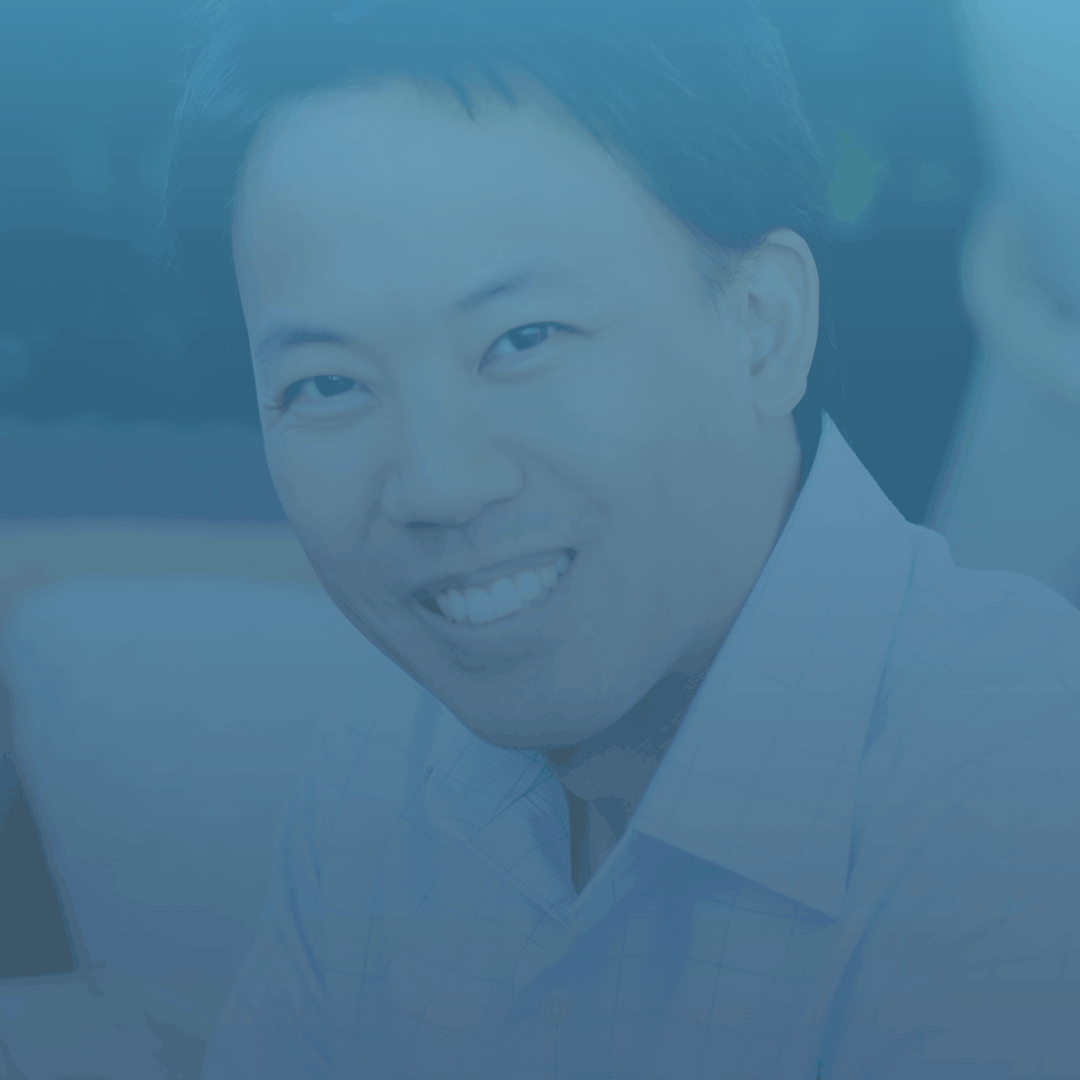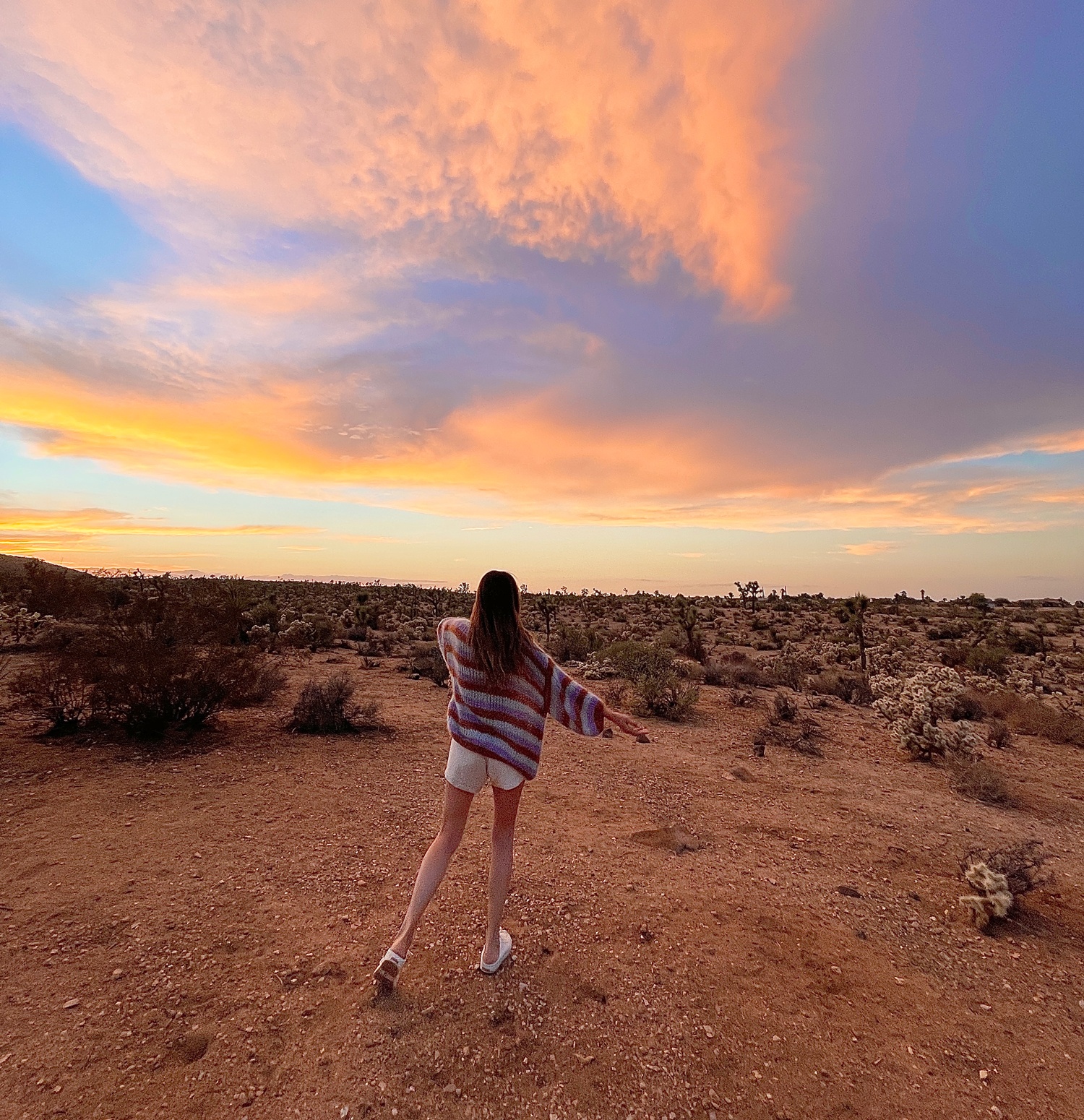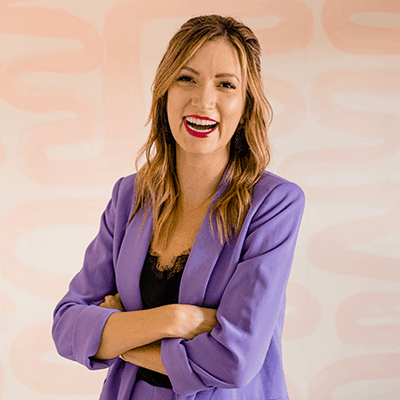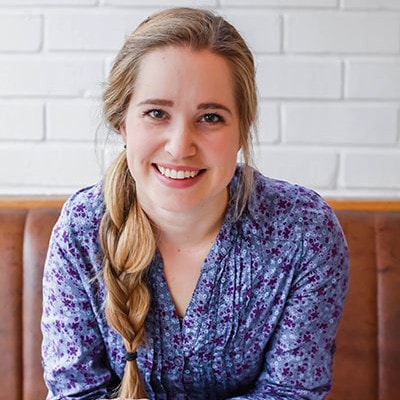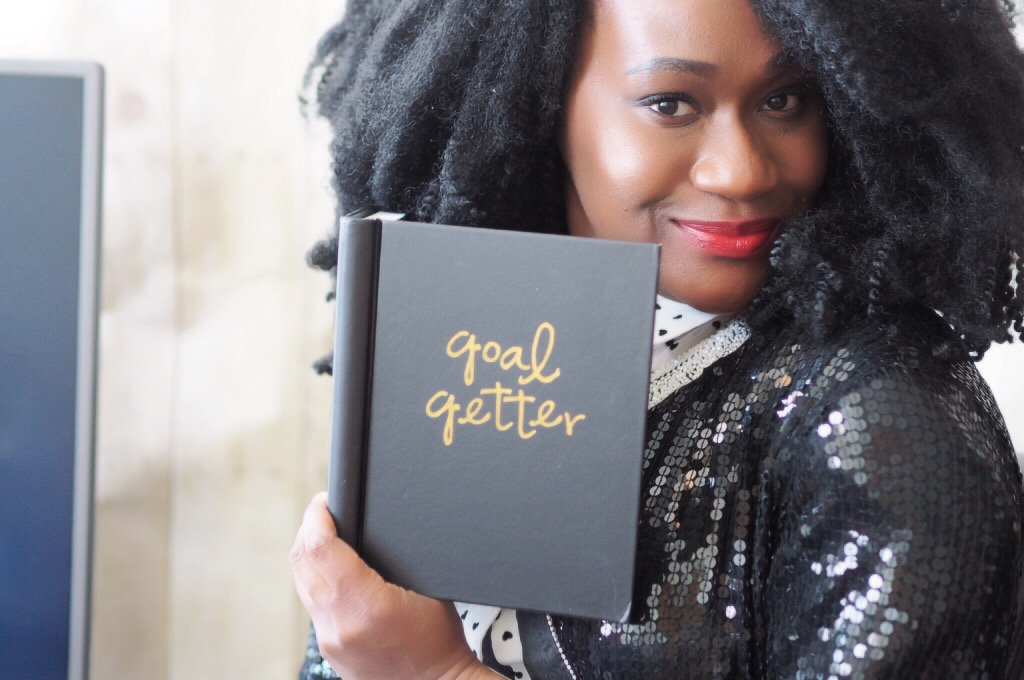Have you ever felt overwhelmed with how much information you need to learn? Or have you ever felt unfocused and distracted in trying to achieve your goals? Are you tired and unmotivated because of the limiting beliefs you play on repeat?
If you’re nodding in agreement or raising your hand, don’t worry. Jim Kwik is about to change all of that, and he’s going to teach you a new way to live your life. A widely recognized expert on brain performance, accelerated learning, speed reading, and memory improvement, Jim is the founder of Kwik Learning, and he can literally teach you how to learn so that you operate at your full power every single day.
I met Jim through a business mastermind we’re both part of and was quickly drawn to his vulnerability, humility, and kindness. He’s also an incredible speaker and teacher — when he gets on stage (or on a podcast!), you can tell that he’s ON. He is seriously good at what he does.
As you’ll learn in our interview, Jim grew up with learning challenges of his own. Rather than allowing these challenges to hold him back, he was propelled to find a better way to live and to teach other people how to do the same.
This interview is going to fascinate, inspire and teach you how to live your best life, by creating your best brain.
By the way, Jim and I hosted a free workshop online to expand on some of the concepts you’ll learn about in this episode. If you’d like to register, just click here!
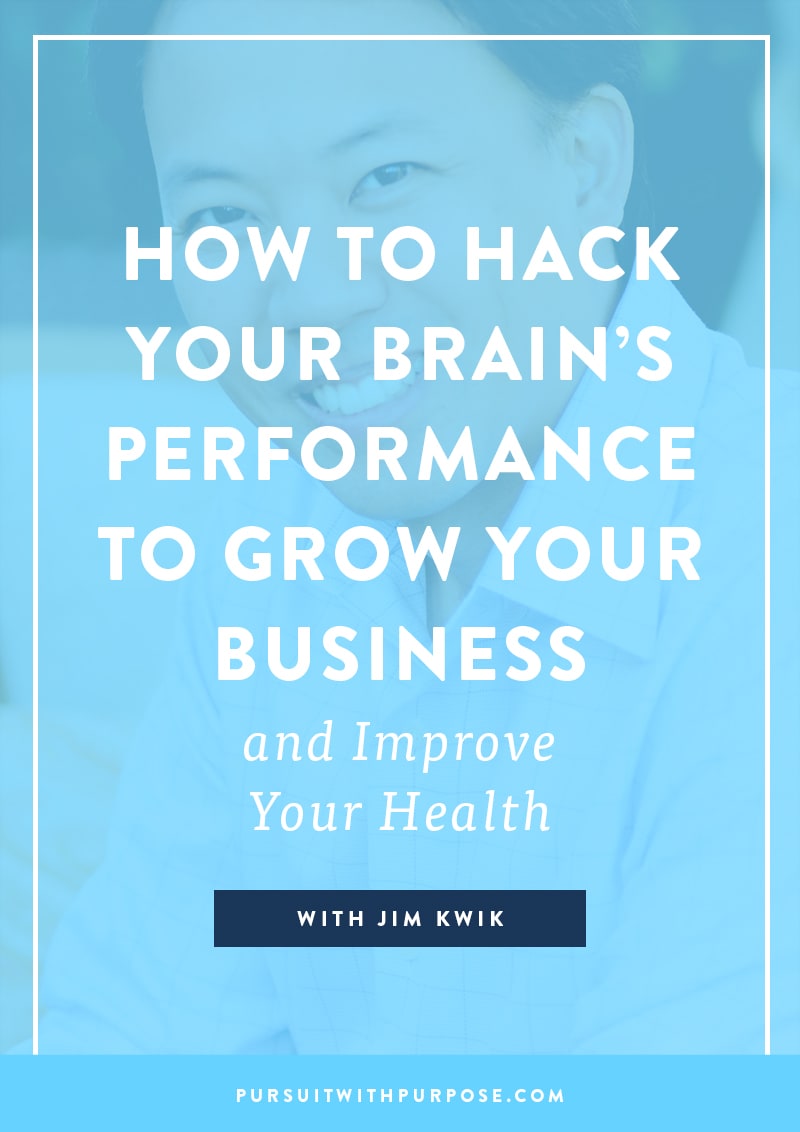
Check out the episode below:
In this episode, you’ll hear about things like…
- The daily habits and routines Jim recommends to access your full potential.
- The incredible way negative self-talk affects your brain’s performance.
- Jim’s perspective on education, and how schools teach students what to learn, but not how to learn (and why it’s just as important to find better ways to learn).
- The one skill we need to master (and why it’s absolutely required in the 21st century).
- What we should (and shouldn’t) eat for optimal brain health.
- Why Jim brushes his teeth with his opposite hand (and how this seemingly simple task affects the brain).
And as promised, here are the 10 keys for optimal brain health, too!
- Good Brain Diet
- Killing “ANTs” (automatic negative thoughts)
- Exercise
- Brain Nutrients
- Positive Peer Group
- Clean Environment
- Sleep
- Brain Protection
- New Learnings
- Stress Management
Want to learn more about each of these keys to health + discover constructive, actionable ways to reduce your overwhelm and accomplish more in less time?
Well, Jim and I taught a free workshop (online!) all about how to do all of the above. Jim is an international speaker who has worked with celebrities, billionaires, former presidents, and more. And I can attest to the fact that Jim is an incredibly knowledgeable and engaging speaker. You do NOT want to miss this workshop!
Click here to register for free. 🙂
Links from the interview:
- Jim’s Website, Kwik Learning
- Jim’s Podcast, Kwik Brain
- Jim on Facebook
- Jim on Instagram
- Jim on Twitter
- Think and Grow Rich, by Napolean Hill
- The Power of Positive Thinking, by Norman Vincent Peale
- Psycho-Cybernetics, by Maxwell Maltz
- The 7 Habits of Highly Effective People, by Stephen R. Covey
Subscribe and Review!
Want to be the first to know when new episodes are released? Click here to subscribe in iTunes!
Also, podcast reviews are pretty darn important to iTunes and the more reviews we receive, the more likely we’ll be able to get this podcast and message in front of more people (something about iTunes algorithms?). I’d be extremely grateful if you left a review right here letting me know your favorite part of this episode!
#PursuitWithPurpose
Loving the podcast? I encourage you to use the hashtag #PursuitWithPurpose to show our PWP tribe how you live your purpose everyday. Plus, you’ll get to sift through the hashtag to find other business owners who care about community and connectedness over competition and comparison. And I’ll be reposting some of my favorite images and stories, too. 🙂
Thank you for listening!
Transcript
Read the Interview Transcription HereAs you’ll learn in our interview, Jim grew up with learning challenges which propelled him to want to find a better way to live and to teach other people how to do the same. During this episode, you’ll learn about Jim’s incredible story of how he got involved with brain performance, the daily habits and routines he recommends if you want to access your full potential, including which foods you should be eating on the regular, and the incredible way that negative self-talk affects your performance, and just so. so much more. We really dig in deep into a lot of really incredible topics in this interview, and I think you’ll absolutely love it. So this interview is going to fascinate, inspire and teach you how to live your best life by creating your best brain. Let’s dive in.
Melyssa Griffin: Hey Jim, welcome to the show.
Jim Kwik: I’m so excited about this Melyssa. Thank you so much and thank you everyone for tuning in. It’s going to be mind blowing.
Melyssa Griffin: Literally. So I want to start with just why did you become interested in the brain in the first place. What led you there?
Jim Kwik: Well you could say my inspiration was really my desperation. When we’re talking about pursuing your purpose and tapping passion around it, I find that for me I had a lot of pain and I struggled a lot. I never really understood what this thing between our ears, it’s kind of like a black box, three pound black box of gray matter that we really can’t see. We can see people’s bodies and stuff, but you can’t see like the most important organ that they have which controls everything. The reason why I’m so interested in this is because I grew up with learning challenges that actually stemmed from a childhood head injury. I had a really bad accident when I was five years old. I couldn’t understand things the way that everyone else did. Teachers would have to repeat themselves three, four, five times, and after a while, I would just pretend to understand. I don’t know if anyone could relate to that, every day just trying to keep up with everybody and not feeling good enough or smart enough. I had really bad focus and I couldn’t remember things. It actually took me an extra three years just to learn how to read which was a big struggle. I think a lot of fear of public speaking – I know a lot of your listeners that are entrepreneurs, they have to get in front of groups of people and coach them or present in front of them, other people. For me, I had trouble I think came from like reading. Remember when you’re a kid, you had to pass around that book and you had to read out loud to your classmates? That was really embarrassing for me because I couldn’t do that.
And so, I grew up with all these challenges. At the age of nine, I was actually – I overheard a teacher talking to another adult, pointing at me, thinking I wasn’t paying attention or maybe I wasn’t smart enough to understand, point to me and say, “That’s the boy with the broken brain.” That really hit home. I mean those negative self-talk and those negative identities we have in our lives is – whether you’re an educator, an entrepreneur or whatever your vocation is, really limits us because I think all behavior is belief driven. If we have a negative belief saying we’re not smart enough or I just don’t have the education or I’m too old or whatever – fill in the blank, it can really affect the results we get in our life. And so, I became very fascinated with how the brain worked. I thought it was interesting in school that they would teach you like what to learn, like classes full of math, history, science, Spanish – all important subjects, but there weren’t a lot of classes on how to learn, how to listen, how to be creative, how to think differently, how to solve problems, how to find your purpose. I mean all these important life skills. I think if there’s one skill to master in today’s age, the 21st century, it’s your ability to learn better, your ability to learn faster because the world is changing so fast. The half-life of information is shorter and shorter, like what you learn now, it becomes outdated so quickly. There’s this gap right now between – not even just between the haves and the have nots, it’s like those who know and those who just don’t know. I feel like now we’re overloaded. There’s too much information, too little time. How do you keep up with all this? It feels like when you’re trying to – you buy all these books on Amazon, they sit on your shelf and it becomes shelf-help not self-help. You feel like you’re taking a sip of water out of a fire hose.
And so, my passion is helping people upgrade their skills to fill in the gaps that they should have in their school all along and teach them how to read faster, teach them how to remember things, teach them how to have focus and concentration. They say we use a very small percentage of our brain’s potential. I think because our brain doesn’t come with an owner’s manual and it’s not user friendly, and it can do so many remarkable things – we have discovered more about the human brain, more in the past 20 years than the previous 2000 years. What we found is our grossly underestimating, like your capabilities and your power, your mental abilities. So my passion is no brains left behind. I want to show everyone what they’re really capable of.
Melyssa Griffin: I love that. I love that it started with something that felt traumatic for you, because I think a lot of times in life that leads us to our purpose, is finding something that was really painful or that tested us in a really challenging way, and then using that to help other people which is exactly what you’re doing right now. Did it feel that way as a kid or as a teenager? Did you know this is what I need to be doing or did you kind of stumble to find this?
Jim Kwik: Yeah, it was actually a little bit by accident. I think for me, I was looking to reconcile everyone saying like hey, you hear all the time in the personal development community that we have this incredible potential and it’s unlimited and everything. So I was always trying to reconcile that with my results in life. If I’m so unlimited, how come I’m struggling all the time? And so, I actually – my two biggest challenges growing up were learning and public speaking. Public speaking was an issue because when you feel like you’re the boy with the broken brain, you don’t really connect with people. You don’t feel like you have a lot of value to offer people which is kind of ironic, because if those are my two biggest challenges, learning and public speaking, the universe has a sense of humor because that’s what I do pretty much every day.
Melyssa Griffin: Yeah very interesting.
Jim Kwik: Like I public speak on this thing called learning. So when I was 18, I actually wanted to start fresh when I got into college as a freshman. I want to start fresh. I want to start new. I want to show the world, show my family, show myself most of all that I was good enough and create a new identity for myself. It actually got really worse. Instead of doing better, I did worse and I was ready to quit school. I didn’t know how to tell my parents because they had immigrated here and they worked really, really hard. I wanted to be a good example for my younger brother and sister. I was actually ready to quit. A friend of mine said, “Hey, before you quit why don’t you – I’m going home this weekend, why don’t you come with me, get some perspective.” I think it’s really important for all of us to be able to go into a new environment to get some perspective when we’re struggling with something, a new place, get around new people, giving yourself a new point of view and some fresh eyes. So I agreed to go, and the family is – they’re successful and not in the maybe traditional – I mean sure they had some wealth. They owned a great home by the water and stuff. They were just really happy and they were living – you could tell they were on purpose. The father is walking me around his property before dinner and asked me a very innocent question that you would ask an 18 year old kid. He said, “Jim, how’s school?” Which is the worst question you could ask me at a time in my life. I just broke down and I start crying. It’s like you don’t know how to hold all this together. I’m so much stressed. I haven’t slept for forever and I’m just studying all the time, and I’m not getting the results as everyone else is. And then he’s a very smart man, and he asked me a question. I find that questions are the answer. I think questions are incredibly important. Ask and you shall receive. If you want new results, I feel like we have to ask a new question. Even when I talk about speed reading, comprehension, remembering names, a lot of the basis has to do with asking these very deliberate, intentional questions.
And so, he asked me the question, like why are you in school? What do you want to be? What do you want to do? What do you want to have? What do you want to share with the world? I didn’t have an answer because no one’s really asked me that before. When I go to answer him, he makes me pause, he puts his hand up and makes me stop, and he reaches into his back pocket, and pulls out his journal. I think that’s really important too. I think journaling is very important to be reflective to be able to take notes and write down your thoughts. He tears out a couple sheets of paper and he makes me write down my answer, basically what I want to be, do, have and create, share in the world. After – I don’t know how much time goes by Melyssa, I have like a list, a whole list like maybe a couple pages, like a bucket list – I didn’t know at that time. And then when I was done, I start folding the paper to put into my pocket. I thought the exercise was over, and he reaches out and he grabs the sheets out of my hand. I’m freaking out because he starts looking at them. I didn’t know he was going to look at my dreams. I’m very shy and I’m intimidated because he’s obviously very successful. He looks at it for I don’t know how long, but when he’s done, he looks right at me and he says, “Jim, you are this close to everything on that list.” He spreads his index fingers about 10 inches apart, and I’m thinking no way. Give me 10 lifetimes, I’m not going to crack that list. That’s my negative self-talk.
I always tell people that if you fight for your limitations, you get to keep them. If you argue for your limits, you get to keep them. I’m arguing, saying no I’m not smart enough, I can’t do it. He takes his fingers and he puts them at the sides of my temple, meaning that between there, my brain was the key. He takes me into a room of his home before dinner. You would love it. It is wall to wall, ceiling to floor covered books. I’ve never seen like a library in somebody’s home before. Keep in mind, I’m like phobic of books. I’ve never finished a book cover to cover. I have trouble reading. They’re like snakes for me. And so, I feel like I’m in a room full of snakes, and what makes it worse is he starts grabbing these snakes and handing them to me. I start looking at these titles and there are these biographies of some incredible men and women in history, and also some really early personal growth books like “Think and Grow Rich”, “The Power of Positive Thinking” and “Psycho-Cybernetics”, and Norman Vincent Peale, and Napoleon Hill. He says, “Jim, I want you to read one of these books a week.” I’m just thinking no. I have learning challenges. I can’t even keep up with school. When I said I can’t keep up with school, he looks right at me and he says, “Jim, don’t let school get in the way of your education.” I was like wow. I didn’t know at the time it was a Mark Twain quote. I was like that’s a nice saying and all, but I can’t do this. I don’t have time and if I commit to it, I’m going to do it. He’s a very smart man, he reaches into his pocket and he still has my bucket list. He starts reading every single thing, line for line, every single one of my dreams, my deep desires, my fantasies, my wants.
That’s another principle I think, when it comes to accelerated learning. I like to teach people how to remember things, how to learn any subject or skill faster, how to read better, the things we’re going to talk about in this conversation. I think it starts with motivation, like leverage, like motive. What’s our motive for taking action with things? Even as an entrepreneur, why do we procrastinate and put off the things that we really need to do that’s really going to make a difference? And so, after he starts reading every single thing on my bucket list out loud, something about hearing those dreams, my dreams in another man’s voice incanted out into the universe, really messed with my mind, my spirit, my heart – something fierce. Honestly, most of a lot of things on that list, at least half of the things were things I wanted to do for my family, things they could never afford or would never do for themselves. And so, with that motivation, I agreed to read one book a week. So fast forward, I’m sitting, I’m back at school and I’m sitting at my desk, and I have a pile of books I have to read for midterms and a pile of books I promised that I’m going to read. It puts me over the edge. I can’t keep up so I don’t eat, I don’t sleep, I don’t spend time with friends, I don’t work out, I don’t do anything. I mean sometimes it’s tough as an entrepreneur because people, say you may work nine to five and you have to feed your business and your business feeds you back, and hustling and everything, but then there’s – when we lose this harmony, it’s not very sustainable. It might be attainable, but you can’t sustain it over time. And so, I think self-care is a very important element also. I think self-love and self-care is not selfish, because a lot of people put other people first in everything. Anyway, I ended up staying and living in the library, and I ended up passing out one night of sheer exhaustion. I fell down a flight of stairs and hit my head again. I woke up two days later in the hospital.
At this point, I haven’t been eating for months and I’m down to 117 pounds. I thought I died. It was like the darkest time in my life. When I woke up, I just thought there had to be a better way. When I had that thought, you’d appreciate this, a nurse came in with a mug of tea and on it was a picture of a genius, the opposite of what I thought I was. It was Albert Einstein. It had the quote that we’ve all heard, but it’s especially relevant to this conversation. It said, “the same level of thinking that’s created your problem won’t solve your problem”. Just like with our finances, with our relationship; the same level of thinking that created the situation won’t fix it. It made me think, asking another question, going back to the principles of question, saying like well why – what’s my problem. I came up with this thing, like I’m a really slow learner. I have a very slow brain. I was like well how do I think differently about it, how do I learn faster, and how do I learn how to learn. I put my studies aside because it wasn’t making a big difference for me. I started studying this idea of meta learning. Meta learning, which is learning how to learn. I started studying adult learning theory. I started studying a little bit about how the brain works. I started studying positive psychology, speed reading, memory enhancement. I wanted to know how to basically solve this riddle of how my brain works so I could work my brain better.
And then about – fast forward about 60 days into it, it felt like a light switch went on. For the first time it switched on, and I started to understand things. I started to have better focus. I started to remember things and then I started to read faster and comprehend things. And then my grades shot up. It was like night and day, like literally that was my zero to hero moment. With that result, my life started to improve. You know this, like finding – when you’re on your way pursuing your purpose and the things that matter to you most, there are these clues and these signs that we’re open to it. I feel like that – I have a general belief that says that yes I think it’s good that we could search and seek our purpose, but also I feel like that maybe our purpose is also seeking us. But maybe it doesn’t come in the form that we’re expecting so we don’t see it. And so, my purpose was after I changed my life and I transformed it, I can help and help other people, and I started tutoring. One of my very first students, she was a freshman, she read 30 books in 30 days. Can you imagine going on Amazon picking 30 books; marketing, media, negotiation, health, longevity – whatever it is? She read it, and understood it, and comprehended it, and retained it in 30 days.
I wanted to find out not how she did it, I know how she did it, but I wanted to know why – going back to motivation. I found out that her mother was diagnosed with terminal cancer, was given only 60 days, 2 months to live. The book she was reading were books to save her mom’s life. I ended up getting a call from this young lady, six months later and she’s crying and crying and crying, and I found out that her mother not only survived, but is really getting better. Doctors don’t know how, they don’t know why. They called it a miracle, but her mother attributed it 100% to the great advice she got from her daughter who learned it from all these books. That’s why I realized that if knowledge is power, learning is your superpower, that if knowledge is power, learning is your superpower. It’s a power we all have. It’s just we weren’t taught. If anything, we’re taught a lie somehow that our potential, our intelligence, our memory for instance is somehow limited like our shoe size. It’s absolutely not true and I just know from personal experience.
Melyssa Griffin: Yeah, wow. Thank you for sharing that story. That was amazing how you got started with this topic. That was beautiful. Quick question, are you still in contact with that friend’s dad since he gave you quite a turning point?
Jim Kwik: Yeah, I mean he really was my yoda, but no, I have not been in contact.
Melyssa Griffin: Yeah. It’s almost like those people come into our life just to give us those types of…
Jim Kwik: Isn’t that interesting? Like how messages come in different forms, and especially if we’re open to them.
Melyssa Griffin: Right. I loved your point about reflecting, pausing, journaling and asking questions. I think that’s so important, where like you said, we go through life and we kind of go by what we’ve known and the things that have just been normal for us our whole life, and we don’t pause to ask better questions or to try and understand a situation in a new way. So I think that’s important too. Do you feel like there are tactics for asking better questions? How does somebody get started with something like that?
Jim Kwik: Yeah I mean I think – and you and I have had conversations about this, is just a lot of it, a lot of our success and our productivity, everything comes down to our focus. It’s just how do you remain focused in a world full of distractions, app notifications, and social media, and text messages, and all these things that we need to do that are vying for our attention, even marketing. I mean that’s really – we live in the age of attention. I think what controls a lot of our focus is our self-talk and the questions that we ask ourselves. In fact, I think a lot of people – I teach routinely, people how to read like 300% faster with better comprehension and retain more of it. I think it’s an important skill because if somebody has decades of experience that they put into a book and you could read in a few days, you can download decades in days. I mean that’s incredible to manage. What helps you to retain more of it and understand more of it, is having questions. I think it’s a skill that we could all learn to be able to employ. Part of it has to do with self-awareness, first just being – like I think self-awareness is a superpower, just being aware of your self-talk, just that it exists and be more sensitive to it. Also, when it comes to questions, you have this part of your brain, it’s called the reticular activating system – it’s like RAS for short, and that determines what we’re going to focus on.
So for example, right now everyone who’s with us right now, we could be paying attention to two billion different kinds of stimuli in the environment, and we don’t because it would drive us crazy. What we pay attention to are the things that are important to us in terms of our values and our self-talk, meaning like – so for example, years and years ago, my sister would email me pictures of these pug dogs that just have these squished in faces, and send me postcards with them and everything, and I was wondering why. I realized her birthday was coming up. It was so funny because I started seeing these pug dogs, like I go to the health food store and I would see one in in the shopping cart. I would be jogging in my neighborhood, I would see one, like somebody walking six of these dogs around. The question is, is like where were these pug dogs before? Did they just magically appear all of a sudden? The answer obviously is they’ve always been there, it’s just we weren’t paying attention. When I started asking this question, like why pug dogs or which one should I buy her – that kind of thing. I started to see these things. It’s kind of like when you’re reading something, we set a goal and then all of sudden, whether it’s – let’s say you set a goal for your business or dream, like a car that you want to get or something like that and you start seeing that car everywhere. It develops your sensory belts are sensory acuity to be able to pay more attention to it.
So I think to improve your ability to ask questions, first of all know that we’re doing it all the time, and number two, know the importance of it because it’s a highly valuable skill because it directs your focus. Wherever focus goes, that’s where your energy goes also as well. And then you could override it also, because I remember – like our self-talk is very important. So I’m a runner. With a name like Kwik, your life and destiny is pretty much planned out. I’d be a runner back in school. I get to teach accelerated learning, everything’s about speed. It’s not speed frantic speed, it’s actually this peacefulness, like when I can read a book a day in which I’ve done for four and a half years, or I remember names or remember – recently, I read a – somebody cancelled a keynote and I got this call in the middle of the night saying please come, my speaker can’t get here in time. I was like what’s the topic, and he tells me what it is. I’m like I know nothing about that topic and I was like why are you calling me? He’s like oh but he wrote a book. I’m like so? He’s like well I hear you’re a speed reader. And so, he wanted me to show up before the talk at 12 o’clock the next afternoon, the next day to read the book and present on it, and that’s exactly what I did. It got the highest rated feedback of the conference, and not because I’m a great public speaker – I’ve never had like a minute a public speaking training but I just – the skill set of being able to read something, understand it, retain it and then be able to teach it from memory, I think it’s very important.
Anyway, I was preparing to run this marathon and there was this chapter in this book on the psychology of running a marathon, and you’d appreciate this. It opened with this, verbatim because I’m a memory expert. It said, “Your brain is like a super computer, and your self-talk is a program it will run. So if you tell yourself you’re not good at remembering names, you will not remember the name of the next person you meet because you programmed your supercomputer not to.” It’s interesting because I always tell people, you have to monitor your self-talk because your mind is always eavesdropping on your self-talk. Your mind is always eavesdropping on your self-talk. And so, I think when it comes to self-talk and questions and negative self-talk, it’s something that we have to be very acute to, because it’s shaping our behavior every single day of every single moment.
Melyssa Griffin: Right. I love that you include self-talk in brain performance. It’s not just the science or the strategy, it’s also what you believe to be true about yourself and the thoughts that you think. I think we were talking once and you told me that we have something like 60,000 thoughts per day and 95% of them are the exact same thoughts we had yesterday, which I thought was just…
Jim Kwik: Isn’t that crazy? People – and we talk to entrepreneurs, they’re like I’m not that creative or I can’t get out of – and people are always talking about thinking outside the box. It’s just analyzing that percentages, and I don’t know how accurate it is. I was talking – I actually learned that 20 plus years ago from Deepak Chopra. It’s interesting because if we want new results in our life, thoughts or things, that we need to be able to have new thoughts. Most people, they don’t want novelty. It’s so interesting because how you build your brainpower, one of the ways of building – there’s these terms in neuroscience called neurogenesis and neuroplasticity which you know of. Neurogenesis is basically saying we could create new brain cells till the day we die. I mean how exciting is that. Neuroplasticity is saying your brain is like plastic, you could create new connections that’s very malleable. What encourages and supports neurogenesis, neuroplasticity are two things: it’s novelty and nutrition. It’s just like your physical body. If you want to build physical muscles, like you want to build your biceps, you need to give it novelty. You need to work it out, give it stimulus, and then you have to have a nutrition so it could repair and build itself stronger. Same thing with your brain muscles; you want to create new novelty and new learning, new thoughts, and then even physical physical movement is good for the brain. And then you want to feed it the right kind of nutrition, the kind of stuff that we teach in terms of like the best brain foods all that fun stuff.
Melyssa Griffin: What are some foods out there that you recommend or even that you don’t recommend for brain performance and health?
Jim Kwik: I would say – and I just talked about this on my podcast. We talked about my top 10 favorite brain foods. So for example, you are what you eat. Let me back up. There are 10 keys to activating what I call your quick brain. This is the brain that’s the strongest. It’s the fastest. It’s the most agile. I think that once you access that part of yourself, you unleash those super powers if you will. Your business becomes easier because if you want your business to grow, you need to grow. The age that we’re in right now, it’s not your muscle power, it’s your mind power. It’s not your brute strength, it’s your brain strength. So here’s the thing though, a lot of people have this negative self-talk, saying I’m too old, I don’t have the education, I don’t have the IQ or whatever they say. I would say the truth is one third of your performance potential is predetermined by genetics and biology. That’s true, one third, but that means two thirds is completely in our control. So that’s really exciting and that’s really our lifestyle. So the ten keys that really move the needle: number one is a good brain diet which we could talk about, like my top 10 favorite brain foods, but it’s not just a good brain diet. Number two is what you and I have talked about in different conversations and here too, is killing ants, killing ants – not the insect, ants. They’re automatic negative thoughts, because thoughts are things because you are what you eat. You are your thoughts. The third thing is strategies on how to be able to reduce negative self-talk and such. The third thing is exercise across the board. One of the best things you could do to keep yourself just mentally more fit and focused, is physical movement because our brain – the number one – people don’t know this, the number one function of the brain, primary function is to control our movement. Here’s the thing, as your body moves, your brain grooves. So when you dance, you do ballroom dancing or you move your body – like I read this study recently in Oxford. They did this research saying jugglers have bigger brains, just learning how to juggle builds more white matter, which is exciting. So physical exercise. Anything that’s good for your heart is going to be good for your head. So number four is going to be brain nutrients, certain nutrients that you might not get in your diet. If you’re deficient in B vitamins or vitamin E which is very protective of the brain, your omega 3s obviously are critical, fatty acids. You can learn the techniques, but if you’re deficient then you’re going to have a hard time. So that’s four. Number five is positive peer group. That’s why I love hanging out with you and your community is also awesome, and your show is great because it’s inspiring and it’s instructive. I think people need both. You could get some inspiration, but then you don’t know what to do or you just get the instruction but you aren’t inspired to do anything with it. We are who we spend time with, and the average of the five people, and so on. A lot of people are spending time with like mental vampires who are just stealing your thoughts, your vitality, your dreams. So a positive peer group.
And then finally the second half of it – six is clean environment. You know that when you clean your laptop off or you clean your desk, and you feel like more mentally clear. So it’s good for your brain. Number seven is sleep. That’s a huge, huge one for a lot of people. We have this sleepless epidemic. It’s so important for your brain because that’s where you clear plaque out of your brain that lead to dementia and Alzheimer’s. That’s where you can salvage short to long term memory. Sleep also – I just did a whole podcast episode on this, on how to remember your dreams. A lot of people actually – you’re learning all day and you’re solving – you want to solve problems as an entrepreneur or as a parent or achiever. Your brain doesn’t stop at night, your subconscious still continues to work on solving these problems. A lot of people are coming up with real solutions when they sleep in their dreams but they forget it first thing in the morning, like a lot of people do. A lot of the inventions and art and literature and music all came from dreams. “Yesterday” came from Paul McCartney’s dream. The sewing machine was invented in Elias Howe’s dream. The periodic table was in a chemist’s dream. “Frankenstein” came in Mary Shelley’s dream. I mean it’s amazing. Imagine all the incredible like inventions and entrepreneurial ventures that are just in dreamland.
Melyssa Griffin: Yeah, that reminds of – I was listening to a podcast recently about how much we use our phones and how that’s stopping us from thinking of creative ideas, because the second we become bored or we don’t have some sort of stimulation, we’re like I’ll just grab my phone and scroll through Instagram. The act of letting ourselves be bored and then sleep and have dreams and just let our mind wander, is what creates all these creative ideas and solution to the problem.
Jim Kwik: That’s so amazing because like literally, I just posted on Instagram this thing on white space and the importance of white space for creativity and such. You’re absolutely right. Creativity has dropped. There’s actually this thing, we rely on our phones so much they call it digital dementia. We actually don’t have the memories we once had because we’re outsourcing our brains to our smart devices. So it gets our calendars, it gets our to-dos, it does simple math. It retains every single phone number, and not that you want to memorize hundreds of phone numbers, but we’ve lost the ability just to remember one. And so, I believe two of the most costly words in business are “I forgot”. Think about it, like for people just in their careers or people who are listening who are entrepreneurs, they own their own business, think about the consequence of saying I forgot that meeting, I forgot what to say, I forgot that conversation, I forgot that person’s name. It kills relationships. So sleep is so important because people think – when I ask people like how do you build a muscle and people say exercise, but that’s not actually completely true. That’s where you break down a muscle, you tear down a muscle, but you actually build it when you’re resting. Same thing when you’re learning; you actually create long term memories when you’re sleeping. People who are pulling all nighters for school, they’re pulling all nighters for work, it’s counterproductive for sure.
And then finally eight, nine, and ten – just to go through fast. Eight is brain protection. A lot of people don’t learn fast or how to activate their quick brain because they get injured a lot. Wear helmet. Nine is new learning, committing yourself to life long learning which I think is the number one thing people could do as entrepreneurs. And then finally number ten, this is a big one, stress management. People don’t realize how much stress they’re under because it’s normal. It’s like the fish in the water, they don’t see the water but it’s ever present. Now stress, we’re so accustomed to it, we don’t realize how much stress that we’re under all the time. The reason why it attacks your brain is because when you’re under constant stress, you’re always creating a lot of cortisol and adrenaline. It’s good for fight or flight, but it’s not good if you need to prepare for a test. It’s not really good if you need to prepare for a meeting or give a speech because it shuts down big parts of your brain and critical thinking skills, and everything else.
So those are the lifestyle hacks I would say, and I don’t think anyone would debate any of those 10. It’s just when I go through it and you think about it, my challenge to people who are listening is as a coach, I don’t want to tell you what you want to hear, I want to tell you what you need to hear. I’m saying that in my experience, that people are neglecting one or more of those areas. If you just handle those areas, then unbelievable things open up. It’s like a combination lock when you get all of the numbers. And so, some people say yeah you’re right Jim, I’m not getting enough sleep or you’re right, I’m spending time with the wrong – this one person that’s really draining my motivation and my passion, or I’m under too much stress or I’m not reading every single day or I really have to clean the house. So I could just do something like that.
Melyssa Griffin: Yeah I love that. We’ll post that list below this episode too, because I think all of those things are so important for being at your full potential and living that way. I like that.
Jim Kwik: I know we’re going to do something special for the listeners. We’re going to do a special – if it’s okay to mention, we’re going to do a special free web class for everybody, but we’re going to go deep. It’s going to be all like strategies and techniques. I’m going to teach a strategy on how to memorize that list backwards and forwards. So people who want to learn how to give a speech in front of a group of people and do it with no notes, no teleprompter, no keynote, no PowerPoint presentation, I’ll teach you how to memorize those 10 things forwards and backwards literally in 2 minutes. It’s going to be awesome.
Melyssa Griffin: Yeah. I can’t wait for that. So if you want to sign up for that as well, you can go to melyssagriffin.com/jim and sign up for that free workshop that Jim is going to be teaching. I am super excited because I don’t know if you’ve been able to tell already, but Jim is a major expert and so well versed in this stuff. So it’s going to be really good. I want to circle back to what you were talking about with food as one of the important aspects to optimizing your health and your brain performance. What are some of the foods that we should be eating? Because I think diet is so important.
Jim Kwik: It is. So here are some of my favorite ones, I would say in no specific order: avocados, very good for the brain. Number two, I would say blueberries. I like to call them brain berries because they’re very – all the antioxidants, very neuroprotective. Three, broccoli. Parents are right, eat your broccoli, very good for the brain.
Melyssa Griffin: I love how so far these are all like my favorite foods.
Jim Kwik: Awesome. One of the things that – as a kid, this was probably one of my challenges because I was eating processed foods and brownies and cereals and stuff like that. So it probably added to my hyperactivity. Number four, coconut oil – very, very good for the brain. Number five, I would say if it’s good – if it’s part of your diet, eggs, because again, vitamin E, omega 3 is very good for the brain, choline. Number six, I would say green leafy vegetables – very good, like collard, greens, kale, spinach. I eat those greens.
Melyssa Griffin: Green smoothie in there?
Jim Kwik: Yes. I mean actually when we go through this list, you probably think – you could take probably half these greens and throw them in the blender. Probably not the next one. I would say the next one is salmon or sardines. Wild salmon, sardines, the fish oils if that’s allowable in your diet. I would add that. Number eight, I’ll throw a different one in there, turmeric. Everyone knows this is spice, that golden powder. It’s very good for inflammation. Inflammation in our body and our brain can lead to a lot of issues in performance and just general health. So I like to make like a turmeric tea each morning, maybe put a little MCT oil in it and put maybe a little bit of honey, not so sweet but just make it taste really great. Use almond milk as a base maybe. They call it like a golden milk. Turmeric is so good. The same reason why on Instagram, I’m always, like almost all the time doing these Instagram Lives. I’m going through cryotherapy. Have you done this yet?
Melyssa Griffin: I haven’t done it. I’ve heard of it.
Jim Kwik: Yeah. Cryotherapy, it’s kind of interesting. It’s like if you hit your knee and you want to put ice on it, it reduces the swelling, reduces inflammation. We know a lot of high performers, athletes, dancers, they take ice baths. They soak themselves in ice. It’s very cold. Cryotherapy is – in most cities, they have places like spas where you can go into a cryotherapy chamber. You’re in there, it’s about -240°.
Melyssa Griffin: Oh my God. How long are you in there for?
Jim Kwik: You’re in there for about two to three minutes. There are people monitoring you, but huge amounts – I mean every time I go there, there’s always these very top athletes and dancers, and all these high performers, or some people are going for just pain issues that they have and everything. Cold reduces inflammation in the body. Some medical professionals say inflammation is the starting point for a lot of disease and challenges and stuff like that.
Melyssa Griffin: So is that the purpose of cryotherapy, is to kind of prevent those things?
Jim Kwik: It is. So for me, it’s like a big nervous system reset. I mean I feel like – after I come out, I’m just totally refreshed. I mean think about how you are when you’re outside in the cold and how awake you are and alive. I remember I was with – Tony Robbins has a place in Sun Valley. We were going from like these hot springs on property. So you’re in these hot springs, natural hot springs. It was in February, so it’s like three feet of snow. You go from the hot spring, run through the snow, jump into the river which is cold in February. And then we jump out of the river, through the snow, back and into the hot springs; hot, cold, hot, cold. It helps you with circulation and all these other things. So I like cryo. Turmeric might be an easier start. I do like cold showers also as well. So I have like a whole morning routine that I do and I think that’s important. So turmeric is number eight. Finish out, maybe ten or nine, walnuts. If you look at a walnut, it kind of looks like a brain.
Melyssa Griffin: It does.
Jim Kwik: There’s certain foods that look like the part of the body that it supports, like avocado, like a carrot – if you cut a carrot, it looks like an eye. And so, I tell people for years, it’s like nature’s signature. If you look at signatures, it’s like a sign of nature. Nature is very, very smart. So it’s like hey, this looks like this.
Melyssa Griffin: I love that connection between everything.
Jim Kwik: Yeah. So one that’s good for the brain – ten, I’ll throw a really fun one in, and my weakness which is great that it’s good for you, is dark chocolate.
Melyssa Griffin: Yeah, I was so happy when I found out that dark chocolate is actually good for you.
Jim Kwik: Yeah and the darker the better. You get something in really good form that’s organic and all that good stuff. Besides it being good for you, I mean it creates these endorphins, really good. It makes you feel good. It’s good for your mood. It’s going to be good for your mind. And then the eleventh, bonus one is water. Most people are dehydrated. And so, you could take a bunch of these, throw into like a brain power smoothie and just – you’re all set.
Melyssa Griffin: Right. You would love this. In college, my English professor would pass out pieces of dark chocolate before our exam so that it would help us recall information better.
Jim Kwik: Best teacher ever. There’s all these using senses, and it really makes a difference, like certain sense. The closest organ we have when we talk about our five senses, when it comes to our memories is actually olfactory, our sense of smell. People don’t know this, but if you’re studying something – so they did this experiment where they had people, some were under water, gave them oxygen breathing apparatus and have them study all these words. So when I go on stage, I’ll memorize like 100 people’s names live on stage or 100 numbers or 100 words forwards and backwards, random – whatever. I always tell people I don’t do this to impress you, I do this to more express to you what’s really possible, because the truth is every single person listening could also do it. Every single person bar none could do this outside of let’s say, something serious like medical condition or something, but you can learn how to do this, like you can learn how to do anything. So they put them under underwater and then they want to test. They take them out of water, test – see how many of the words they remember. They submerge them back underwater, see how many they remember. Which environment do you think they remembered more?
Melyssa Griffin: I’m going to say underwater.
Jim Kwik: Underwater is absolutely correct. What the research showed is that because that’s where they learned the information, was underwater, they remembered it more when they were in that same environment. And so, one of the things is that if environment gets linked to the information. That’s one of the reasons why that if you could prepare for a meeting in the meeting room, if you could study in that classroom, it helps like that. Most of the time you can’t do that, but what you can do is bring the environment with you in the sense of smell, meaning that if – let’s say that there’s like a unique perfume or cologne or essential oil, taste of a gum or whatever, that’s very unique and you use that scent or have it on you when you’re studying, and then when you need to perform, let’s say you’re on stage or you’re in that meeting room or in that classroom, take the test, you use that same sent and it will get activated much like Pavlov. Pavlov rings a bell, because literally the bell created the saliva in the dog, and that’s – we’re creating that conditioning which is learning. Plus, there are certain scents that’s really good for your memory. Peppermint, really good for your focus, memory. Rosemary, very good for your focus and memory also as well.
Melyssa Griffin: I need to go out and buy these essential oils now. That’s really good to know, but I can see how that’s true. You mentioned your morning routine. So I’m really curious if there are any things in your morning routine that are especially helpful for you or that you recommend people? What does it look like?
Jim Kwik: I do. I think just like as we’ve heard a million times, that if you win the first hour of your day, you could win the whole day. I think I like focusing on saying on the first hour of my day and the last hour of my day because that’s really – those bookends you could control probably the most, because once you get to work, you’re fighting fires and dealing with clients and team, and everything else like that. If you really want to set your day for success, I mean there’s probably about a dozen things I do every single morning to jumpstart my brain. So everybody has their morning routines that people talk about. Oprah has hers and Tony Robbins has his. For me, every single thing that I focus on is brain friendly, meaning that it’s going to help put my brain in a place where – since it controls everything, in the optimal state. And so, when I wake up, the first thing I do is I remember my dreams. I go through this process and I just come up with so many ideas that I just remembered. The second thing I do is I make my bed, which is important in terms of your performance and your brain. For me, going back to clean environment that we talked about, that’s very important. Plus, I believe how you do anything is how you do everything. That’s a great way to start your day with excellence, because I really do believe there’s a science to momentum. Some people, it’s nice to have a couple of big wins early in the morning so that we can build on success and build some momentum, and the harder things become easier. This whole show on like procrastination, because people are always putting off the things that can help them the most. I think one of the ways is to get some momentum in the morning.
The other reason why I like it is because – what does it take? Like 60 seconds to be able to make your bed? It’s just such a small act, but then you get to come back to that success, get that success right in the morning and then when you come back to go to bed, it’s like you come back literally to success. Another thing I do is I take a cold shower for reasons we talked about, cold therapy. I brush my teeth – like Jim obviously everyone brushes their teeth, but I actually brush my teeth – there’s a little bit twist for me. I brush my teeth with the opposite hand. As we mentioned, that as your body moves, your brain grooves. There’s research by Dr. Lawrence Katz, he did this study with longevity and wanted to find out how seniors could keep their brains alive. A lot of it had to do with simple exercises they could do to promote neurogenesis, neuroplasticity. A lot of them are just using your opposite hand, like using your opposite hand to eat, use your opposite hand to brush your teeth. You have to put your mind in your muscle, so it’s thoughtful. I’ll do that. I make a…
Melyssa Griffin: Interesting. Have you improved at doing that?
Jim Kwik: I do. I actually teach people sometimes to underline using, like when they read, their opposite hand also as well. So I see a big lift in comprehension because there’s a brain hack; the left side of your brain controls the right side of your body and vice versa. The right side your brain controls the left side of your body. We know that, because God forbid, if you know anyone who’s had a stroke and they have trauma on the left side of their brain and if there’s paralysis, it will manifest always on the right side of their body because it’s crossed laterals below the neck. What we found in research is it’s not just a brain body connection, but it’s a body brain connection, that actually using your body like that – this side, let’s say it’s your left side, it actually stimulates the right side of the brain. So it’s not a one way. Why do you want to stimulate the right side your brain? Your left side – and this is a gross simplification, we’re taught that the left side of your brain is logical, and it’s words, and it’s sounds, logic progression. If your left side is logical, your right side more imaginative, it’s more creative, it’s more feelings. Now it’s highly more complex than that, but a lot of us, we want to activate more of our right brain. So for example, reading is for your left brain for people, meaning it’s words, sounds, subvocalization. One of the biggest challenges – the reason why we get people reading three times faster is because we will help people overcome or reduce subvocalization. That’s the biggest reading challenge. People want to read faster. Yes, it’s a focus issue and all these other things, such as speed reading and smart reading, but it’s also this inner talk we have, subvocalization. You ever notice when you’re reading something, you hear that voice inside your head reading along with you?
Melyssa Griffin: Yeah, yeah.
Jim Kwik: Hopefully it’s your own voice, it’s not like somebody else’s voice in there. The reason why it’s a challenge is if you have to say every single word to yourself inside your head, you can only read as fast as you could speak. Let me say it a different way. If you have to say all the words inside your head, your reading speed is limited to your talking speed but not your thinking speed. So people could actually think a lot faster, but they can’t talk that fast. And so, subvocalization, do you need to subvocalize? The answer is no, because like when you see the word computer or New York City, you don’t have to take time to pronounce New York City to understand what it is. You’ve seen it 100,000 times and so you know it by sight. You don’t have to pronounce it using sound and stuff. So we teach people how to reduce the subvocalization, because the fastest readers, leaders are readers; Oprah, Bill Gates, Tony Robbins – all very strong fast readers, JFK – very fast reader. The average person reads about 200, 300 words a minute. John F. Kennedy is said to have read about 800 to a 1000 words a minute. It’s amazing. He’s said to have read six newspapers every morning with one cup of coffee, It’s amazing. I mean think of what kind of advantage you have in today’s information age, where knowledge is not only power, it’s profit. As an entrepreneur, you want to be an expert at your field and you want to know things that other people don’t know so you can make good decisions, because you can only make good decisions based on information you’ve learned. I find that the faster you can learn, the faster you could earn which is so important.
Melyssa Griffin: Yeah, going off of that, I’m curious – so for the entrepreneurs who are listening and who are thinking I know that, I know I need to be learning more, there’s so much information out there that I need to know to grow my business, but they’re feeling overwhelmed or they don’t know how to actually retain all of this information that they need to be reading and learning and watching. What are some tactics that could help them do that?
Jim Kwik: So I would say definitely join us, like on this web class that we’re going to do because that would be full of tactics and strategies, and it’s free. So that’s a great way. So we’ll go deeper in that conversation, the strategies. I would say the most important things when it comes to this, is number one, we could do anything but we can’t do everything. Most people struggle with this other – I talked about digital dementia, the fact that that we’re outsourcing our brains to our smart devices. Our memories are suffering because of it because it’s not getting the exercise we need. The other two areas that we’re struggling with is digital overload and digital distraction, and that’s for entrepreneurs. They want to learn stuff, but what’s the problem? There’s too much to learn in too little time. So you have to be able to filter that. I know that’s one of the big themes of this web class that we’re doing. So first of all, just having – knowing what you want because one of my mentors, his name is Dr. Stephen Covey and he wrote a book called “7 Habits of Highly Effective People”. I hope everyone gets a chance if they haven’t read it, again, to be able to read that book. One of the habits of highly effective people, the two that I would bring up in this conversation is number one, sharpen the saw. The seventh habit is sharpen the saw, meaning if you have all of this wood to cut but you have a dull blade. Don’t do all the effort and energy and time and struggle trying to cut all this wood if you have a dull blade, sharpen it first. That’s what I would say, learning how to learn is sharpening the saw. You could read three times faster, do that first, and then you could read everything faster.
The other habit I would say is first things first, because so many people major in minor things, they’re really good at something that doesn’t matter. I would say that we could get good at anything we want, but not everything. So I would say for entrepreneurs, really focus on one thing that’s going to help you with most of the other things and even highest lever thing. It’s kind of like that domino you hit and it hits like almost all the other ones. And so, I would filter it that way. The other thing I know entrepreneurs are struggling with, is digital distraction, because even if they have that one thing, the one thing they need to do, they’re distracted all over the place because they’re wired for distraction. Notice that when I’m talking about my morning routine, and I talk about okay first thing, I wake up, remember my dreams. Six step process you do in five minutes. Then next thing, I make my bed two, minutes. Then I take a really cold shower and then I brush my teeth with the opposite hand. I drink water and I make my brain power smoothie, and I do my journaling and all that. One thing I never do first hour of the day is touch my phone. Some people know this, but I do believe there’s a difference between common sense and common practice. A lot of people know what to do but they’re not doing it. I would say every entrepreneur has a growing to do list. We all do. The two other lists that I have besides a to do list, is I have a to learn list. So every 30 days, I like to take on a new learning project myself because I think that that’s important. So one of the things people do is articulate, like this is my learning schedule, and actually schedule. Because let’s say an entrepreneur – to answer, go deeper to answer your question, is a lot of people want to learn marketing or let’s say they want to learn stuff like Snapchat or some online social media growing – whatever, but they don’t schedule it. They don’t schedule time to go through and actually get good at this stuff. Because if you talk about it all the time, it’s not going to happen, but when you schedule it, and it’s in your calendar and you treat it like it’s a doctor’s appointment, or something with an investor, or something that you would never cancel with somebody else, you’ll do it. So I think that’s really important.
I noticed that I didn’t talk about touching your phone. So my other list besides having a to do list and to learn list, is a not to do list. I find that – and some of the most successful people that I get an opportunity to work with, they’re very clear on the things that they won’t do, because as the saying goes “you say no to good so you can say yes to great”. Not touching your phone is important for two reasons. Number one is every time you pick up your phone first thing in the morning, the brain wave state you are in first thing in the morning, we cycle through all of these. They call it – beta is when you most awake, delta is when you’re asleep. The middle state is alpha and beta, are incredible accelerated learning states. One is for learning things faster. The other one is for creativity. When you’re in this relaxed state of awareness, when we all are when we first wake up, you’re very impressionable. And so, that’s why hypnosis works and meditation works because when you’re in that relaxed state, you’re open to new suggestions. Television puts us into an alpha state which is very dangerous depending on what you – it could be very good depending on what you’re watching, You’re talking to somebody and they’re watching some show – whatever they’re watching, Scandal or some sports show, whatever, and they’re like in trance. That’s an alpha state. They don’t even hear you because everything is just going inside their mind unfiltered.
So it’s an incredible state to learn languages in and stuff. I teach people how to get access, which are also very impressionable. So you’re in this relaxed state of awareness where you’re credibly impressionable, you pick up your phone. What does it do? Number one, it trains you. It trains you, number one, to be distracted, because every time you get a dopamine – it’s like a dopamine fix. Every time you get a like and a share and a comment, you’re training yourself and you’re wiring yourself to be distracted all the time. That’s really a bad habit to be in. And then number two, it’s also training you to be reactive, meaning that as an entrepreneur or aspiring entrepreneur, you want to be a thermostat and not a thermometer, meaning a thermometer is what? A thermometer’s function, it reacts to the environment. It responds to what the environment is giving it. A thermostat is completely different. It sets a standard. It sets a temperature. It sets a vision, a goal – whatever it is, and the environment levels up for it. As entrepreneurs, that’s what we do. We were – leaders take the invisible, what’s in their mind and they make it visible.
That’s important, but the problem is you’re not being proactive, you’re being reactive when the first thing you do is pick up your phone. You get text messages, emails, everything. Everybody has an agenda for your life. They want something from you. There’s fires that you need to put out everything. You just train yourself to be reactive. You’re never going to have the business that you want or the body that you want, or the relationship – anything that you want, if you’re just reacting to things, as opposed to waking up, setting your first hour and then making your brain power smoothie, and sitting down and journaling. What are the three wins I want to create today, as opposed to checking your email box and try to answer everyone’s question that might not really matter in the scope of things.
Melyssa Griffin: Right, amazing advice. This has been such a phenomenal conversation. I’ve gotten so much out of just listening to everything that you’ve shared. So thank you first of all. I have one final question for you that I like to ask all of my guests. I’m curious to see what your answer is going to be. What do you feel like people can do to live more meaningful and fulfilled lives?
Jim Kwik: Wow. That’s a just a small question.
Melyssa Griffin: Simple and easy one to end off on.
Jim Kwik: Yeah. What can people do to have more meaningful and fulfilled lives? Can I give you three answers, really quick answers?
Melyssa Griffin: Sure, yeah.
Jim Kwik: I would say I find that fulfillment – my work is similar to yours. We’re in the work of transcendence, transcending, ending the trance. Ending this trance that we’re not good enough or smart enough or deserving enough. I think that for people to be truly fulfilled, it’s finding and living their soul’s purpose. That’s such a big thing to say. So I would start with two keys to being fulfilled, I would say is to know who you are and then be who you are, meaning that I would start with being curious. Having the curiosity, being curious enough to want to know yourself, self-awareness that we were talking about earlier today. So being curious enough to be – to wanting to know more about who you are, know yourself. And then having the courage to be yourself. Because a lot of people could find out something about themselves and who they are, but then it takes some level of courage to really be that. So yeah, I would say the curiosity to know yourself and then the courage to be yourself.
Melyssa Griffin: I think that is the recipe for meaning right there. I love that. I know we’re doing a free web class pretty soon here. So I’d love for you to tell people a little bit about what they can learn at that free class.
Jim Kwik: Yeah, so my mission is being – growing up with this label “the boy with the broken brain”, I want to help everybody to show – my passion and my purpose when we’re talking about meaningful lives and fulfillment and purpose, and pursuing it, is to show people what they’re really capable of. Because I think the biggest lever you have in your business when it comes to your earnings or the impact that you’re going to make, whether it’s your intelligence, your influence, your impact, income, any of that, has to do with understanding your mind because it’s the most underutilized asset that we have. It’s the greatest wealth building asset we have. So I want to no brain to be left behind. And so, we’re doing this free web class, the two of us. We’re going to continue this conversation and we’re going to talk about real hard hitting strategies on: Jim, how do you go in front of an audience and remember 100 people’s names. Imagine walking into a room with 20 strangers and leave saying goodbye to every single one of them by name. This is it for entrepreneurs, people don’t care how much you know until they know how much you care. It’s really hard to show someone that you’re going to care for their business, their future, their finances, their health, whatever it is you have a value to offer them, if you don’t just care enough to remember who they are, their name.
And so, we’re going to talk about names. I’m going to give you a four step formula on how to learn any subject or skill faster so you can overcome this digital overload that’s raising our blood pressure. This is the new term, Melyssa, it’s information fatigue syndrome. Information anxiety, higher blood pressure, compression of leisure time, we don’t have the free time we once had, more sleeplessness, stress and all this. So we’re going to show you how to combat information fatigue. We’re going to master information overload, maybe give some tips on how to read faster, and some just really practical things people would do to up level their learning and their life. And so, we have the website for people I think…
Melyssa Griffin: Yeah, it’s melyssagriffin.com/jim is where you can go to sign up for that or we’ll also have a link right below this episode on my website, pursuitwithpurpose.com.
Jim Kwik: And then outside of that, I’m just very – please, I would love for people just to re-listen to this episode and share their big ahas with everybody else. I think one of the fastest ways to learn something is to teach it to somebody else, because when you teach something and you learn with the intention of teaching somebody, you’re going to learn it better or you’re going to make it your own. You’re going to focus differently. I would say teach it. One of the ways you can do it is by sharing this episode with other people and sharing your big ahas. So posting it on social media, tagging us both on it, and sharing your big take away from it. I would like to really – now that you asked that question, I would love to ask people what they think creates meaningful and fulfilling lives and tag me in that, because I want to see their answers. That’s an awesome question. I’ve never been asked that before. I have a podcast also as well.
Melyssa Griffin: Yeah. Tell us where people can find you.
Jim Kwik: It’s Kwik Brain. Here’s the thing, you have to spell it right. Kwik Brain. You can just search my name on iTunes or Stitcher or Google Play. Every podcast episode is only ten minutes long; bite sized brain hacks for busy people who want to learn faster and achieve more. Subjects like how to read a book a week or how to learn another language faster, and just little hacks like that. Kind of fun stuff. The big thing would just be to tune into this web class because that’s going to be way more than – it’s going to be more than ten minutes. We’re going to be able to go deep into that. And then just follow both of us on social media so we can interact with you and answer your questions. I love doing that stuff, action quick.
Melyssa Griffin: Amazing. Jim, you’re so awesome. You have brought so much to this conversation. So thank you for doing this. Can’t wait to see you at the web class.
Jim Kwik: Absolutely. Congratulations on this show also.
Melyssa Griffin: Thank you. I appreciate it.
Jim Kwik: You’re like a modern day superhero. I love it. I can see your cape waving.
Melyssa Griffin: That means a lot coming from you. I appreciate it. Well I hope you have an amazing rest of your day. Thanks for being here for this interview.
Jim Kwik: Yeah, thank you everyone for tuning in. See you soon.
